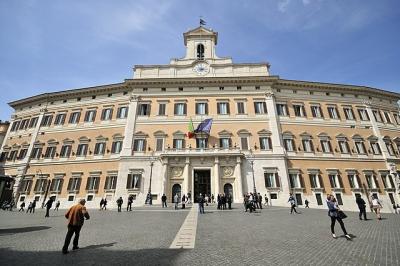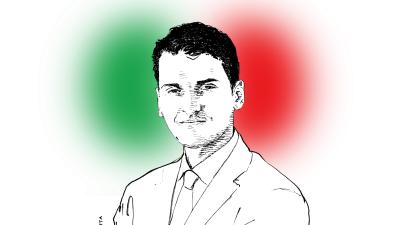A new ideology is roaming Europe, and it is the green ideology. In recent years, an issue as important as nature conservation has become the prerogative of an ideologized environmentalism which, through the “ecological transition”, threatens to challenge our customs, traditions, and lifestyles. Examples are numerous and range from stopping diesel and petrol engines by 2035 to the attempt to introduce a new diet based on insects.
The signs that the ecological transition was not going to be a pleasure trip for European citizens had been evident for some time, but the slope taken by the European Union in recent times looks increasingly worrying for citizens’ pockets. The “ecological transition”, conceived as it stands now, mainly affects the weaker classes. We cannot ask a person who owns a twenty-year-old but polluting car to buy the latest model of electric car because he obviously does not have the financial means to do so; the same goes for the latest news concerning our houses with a new “Eurostangata” (EU-tax-extortion) on the way.
If not for any last-minute changes, the “European Energy Efficiency Directive” is expected to be approved by the European Parliament’s Energy Commission on 24 January and then passed by the Parliament by 13 March. This is a measure that has been debated for some time and that had aroused much controversy already in 2021 due to its stringent rules, imposing a series of renovations on all houses to make them energy efficient by 2027 under the penalty of not being able to sell or rent them: an authentic green folly mitigated by some subsequent interventions without changing its substance.
Thus, by 1 January 2030, all residential buildings will have to belong at least to the ‘E’ energy class, reach ‘D’ by 2033 and zero emissions between 2040 and 2050. This is a demand that clashes with the situation of Italy’s housing stock, consisting of many homes built decades (if not centuries) ago. Suffice it to say that around 60 per cent of buildings in Italy have a class between F and G, and class E generally corresponds only to buildings constructed in the 1980s and 1990s.
The transition to these superior energy classes is to be achieved by a reduction in energy consumption of around 25% through renovations such as the placement of thermal insulation, the replacement of windows and doors, the installation of a new boiler or the fixation of solar panels.
Despite public incentives for the building sector, renovations have a cost that not all citizens can afford and, as with the transition to an electric car, the ecological transition thus conceived takes on a classist character: those who can afford it are welcome, those who do not have the financial capacity must make do.
Although the impossibility of selling or renting a house without the adequate energy classification (a proposal that, moreover, called into question the principle of private property) has been removed, it will be up to the individual states to decide on the sanctions to be applied to those who do not reach the energy standards set by the EU. Thus, the serious loss in value of unrenovated buildings already constitutes a form of sanction affecting the heritage of many Europeans.
According to the EU, buildings are responsible for more than a third of emissions, and 75 per cent of the buildings in Europe are inadequate from an energy point of view. Efficiency upgrading is, therefore, a step that is considered essential to achieve the objectives of the 'Fit for 55', the EU's climate package.
The problem, once again, is that the cost of these measures will fall on the citizens, with a significant impact on Italy, which has an old building stock and a substantial spread of property ownership.
Read also
Country Report: Italy, January 2023
Italy's new foreign policy between support for Kiev and the Mediterranean gas pipeline.
Francesco Giubilei
Pasquale Ferraro
The centre-right wins in Lazio and Lombardy and strengthens the government
On 12-13 February 2023, votes were cast in Lombardy and Lazio, two of the main Italian regions where the cities of Milan and Rome are located. Lombardy is one of Europe's most important economic regions with 10 million inhabitants and a gross domestic product higher than many European states.










Comments (0)